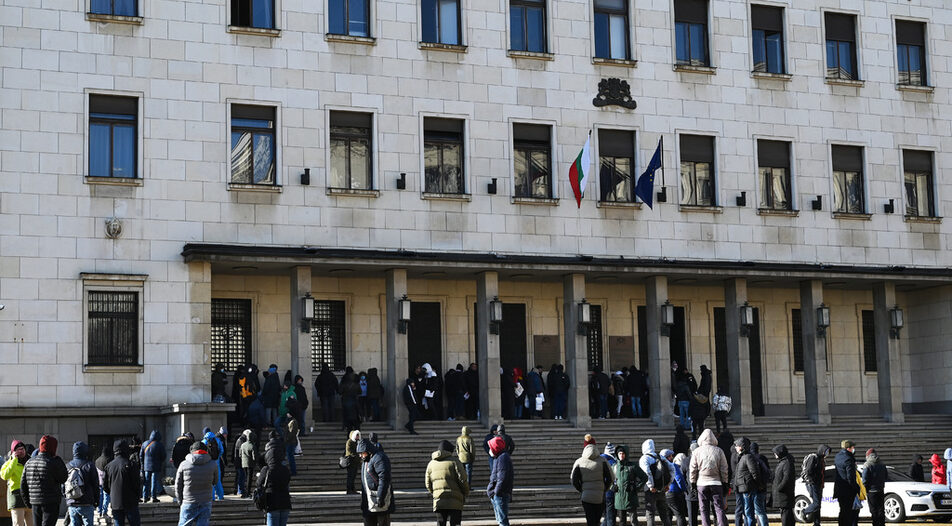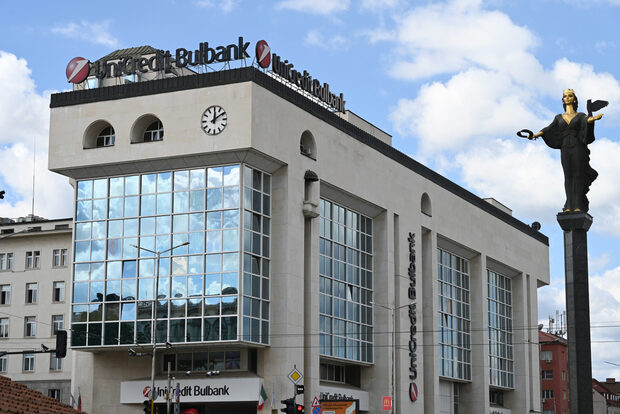The overall profit of banks in Bulgaria reached 1.32 billion levs (674.8 million euro) in the first eleven months of 2021, a rise of 52.8% (or 457 million levs more) compared to the same period of 2020. The increase is due to the low comparison base of the pandemic-marred 2020 when banks were setting aside more provisions for expected future losses. Compared to the booming pre-crisis 2019, however, the profit is about 200 million levs lower. Furthermore, some problems are expected to surface with the end of the credit moratorium.
More of the same
Net interest income for November amounted to 242 million levs, which is the highest level in five years, if distorted end-2019 data is ignored. The average monthly net interest income for 2021 was 228 million levs, up by 8 million levs compared to the 2020 average, with the volume achieved in conditions of shrinking margins from growing loans.
For the first time, monthly interest expenses fell below 20 million levs, while revenues totalled 262 million levs in November, which is about 10 million levs above the average for the year. Net interest income exceeded 2.5 billion levs in the 11 months through November, which is 90 million levs above the figure reported for 2020.
The net income from banking fees from the beginning of 2021 through November totalled 1.12 billion levs, compared to 1.04 billion for the whole of 2020. This is not surprising, as revived business activity boosted demand for banking services. Also, banks increased fees to offset declines in other revenue sources, as well as rising administrative costs.
The relatively lower profit of 102 million levs for November is mainly due to higher impairment charges (63.6 million levs for the month). But impairments for the 11 months through November amount to 491 million levs, or 280 million levs below the level for the same period of 2020. The explanation is that the high uncertainty in 2020 when the pandemic started to spread motivated banks to set aside more provisions for expected losses. However, borrowers continued to service their loans and in 2021, it turned out that the crisis is not so deep and banks do not need to set aside impairment charges that big.
Provisions for the month - 9.2 million levs, are also slightly higher than usual. Last year, the rise in provisions was driven mainly by state-owned Bulgarian Development Bank (BDB), which reports through them expected losses stemming from the government's anti-Covid measures in support of businesses.
Results
In November, banks' assets shrank by 0.2% month-on-month, to 133.3 billion levs. Their investments in government securities increased by about 1.15 billion levs, which was expected because of the increased offer of this type of instruments on the domestic market initiated by the caretaker cabinet.
Total gross loans and advances decreased by 680 million levs (-0.8%) to 87.9 billion levs, but this was mainly due to interbank loans which shrank by 1.5 billion to 12.5 billion levs. Also, growth was reported in both corporate loans (by 426 million levs, or up 1.1%, to 40.1 billion levs) and in loans to households (by 301 million, or up 1%, to 29.2 billion levs). The accelerated growth in mortgage loans continued and they contributed more than 220 million levs to the growth of banks' credit portfolio.
The end of the moratorium
The option given to companies and households to request deferral of their loan installments due to Covid-19 is coming to an end as of 2022. According to the Bulgarian National Bank, exposures of 8.16 billion levs were still under repayment moratorium at the end of November. This means that these are loans extended to all companies and individuals who were involved in the program at the last minute - in March 2021, and have benefited from the maximum time span of nine months. In addition, loans of some 9 billion levs were under repayment moratorium in 2020, which should have already returned to regular servicing. This will be valid also for the "second wave" started in 2021.
Although these loans have required no interest or principal payments so far, they have been considered as serviced. But now, if some companies or households continue to have problems with servicing, banks will have to either restructure those these loans it or reclassify them as overdue, which in both cases will translate into new impairment charges. This is expected to become visible with a delay of at least a quarter.
The overall profit of banks in Bulgaria reached 1.32 billion levs (674.8 million euro) in the first eleven months of 2021, a rise of 52.8% (or 457 million levs more) compared to the same period of 2020. The increase is due to the low comparison base of the pandemic-marred 2020 when banks were setting aside more provisions for expected future losses. Compared to the booming pre-crisis 2019, however, the profit is about 200 million levs lower. Furthermore, some problems are expected to surface with the end of the credit moratorium.











